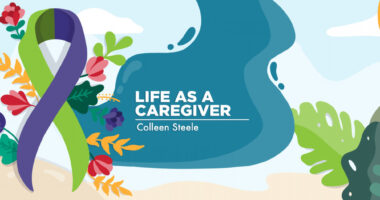What it means to be resilient with PH and other health challenges
Simple moments prompt gratitude for my incredible body and mind

I’m often in awe of my body’s resilience.
Imagine this: The windows are wide open, a gentle breeze dances through the room, and warm Southern California sunshine filters through the blinds, casting patterns on the floor. On such days, amid the freshness of the air wafting inside, I find myself lost in thought.
As I flip through old seasons in my mind and scroll through memories on social media, I’m struck by the magnitude of the traumatic experiences I’ve weathered. At times, I was so out of it that I didn’t recognize my family and friends. Reflecting on those challenging times, I’m grateful my story was unfinished. God only knows how I made it through. Yet, here I am, still standing and breathing. I’m thankful for this resilient body of mine.
I’m not suggesting that I’ve found a cure for pulmonary hypertension (PH) or any of my other health issues, but today there’s a certain magic in the ordinary. I look back at the low points of my PH journey and realize that each one taught me something. Despite its flaws and struggles, my body has carried me through it all. It’s a testament to the human spirit and our ability to overcome even the toughest challenges.
However, resilience isn’t just about surviving difficult times; it’s also about bouncing back.
The power of resilience
Our bodies are incredible. They adapt, endure, and overcome various obstacles. From physical injuries to emotional traumas, our bodies can recover and heal in ways we never thought possible.
Resilience is the ability to overcome adversity and bounce back from difficult situations. It’s not just being tough or strong, but also adapting and finding new ways of coping when faced with challenges.
Feeling the fresh air, breathing deeply, managing to shower, and caring for my personal needs independently may seem like mundane tasks to many. Yet, for someone who has seen days when these were Herculean tasks, they feel like tiny victories. Today, I bask in the simplicity of living. I’m reminded of the strength and endurance we often take for granted.
Our bodies have a unique ability to adapt and persevere. From fighting off infections and viruses like the one that causes COVID-19, to healing broken bones, such as my cracked ribs from coughing, our bodies work tirelessly to keep us healthy and functioning. And when faced with PH, our bodies act as warriors, never giving up in the face of adversity.
Staying mindful
But we possess more than physical resilience; our minds, too, have a remarkable capacity to push through difficulties. The power of positive thinking and the ability to find joy in small moments can make a difference in our overall well-being. It’s a reminder that even in the darkest times, there is always light and hope to be found.
During my journey with PH and other health issues, I’ve learned to cherish the small moments in life. A leisurely walk, a warm hug, or a comforting cup of tea or coffee can bring immense joy. These moments, often overlooked, remind us of life’s preciousness and its worth. They are beacons of light and hope. Support from family and friends is a lifeline for my mindset, reminding me that I’m not alone on this journey.
So let’s not take our bodies and minds for granted. Let’s celebrate their resilience and strength and find gratitude in the simple things. In moments of simplicity, we often find true happiness and peace. As we continue our PH journeys, let’s remember to be gentle with ourselves and appreciate every step forward, no matter how minuscule.
Note: Pulmonary Hypertension News is strictly a news and information website about the disease. It does not provide medical advice, diagnosis, or treatment. This content is not intended to be a substitute for professional medical advice, diagnosis, or treatment. Always seek the advice of your physician or other qualified health provider with any questions you may have regarding a medical condition. Never disregard professional medical advice or delay in seeking it because of something you have read on this website. The opinions expressed in this column are not those of Pulmonary Hypertension News or its parent company, Bionews, and are intended to spark discussion about issues pertaining to pulmonary hypertension.









Leave a comment
Fill in the required fields to post. Your email address will not be published.